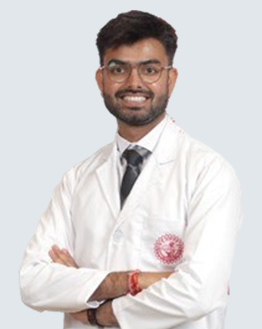Dementia is not a disease, but rather an umbrella term for or a variety of different symptoms that specifically affect the memory, thinking and social abilities of a person, thereby interfering with their day to day life. This includes conditions like Alzheimer's disease as well. Dementia is triggered by abnormal changes in the brain that gradually result in the decline of brain function, including thinking skills and cognitive abilities. Nearly 60 to 80 per cent of the cases of vascular dementia are because of Alzheimer's disease. Vascular dementia is caused by microscopic bleeding or blocked blood vessels in the brain. A person can have two or more different types of dementia at the same time. This is commonly referred to as mixed dementia.
Causes
Common causes of dementia include:
- Degenerative neurological conditions like Alzheimer's disease, Parkinson's disease and Huntington's disease.
- Vascular disorders caused by traumatic brain injuries, chronic infections, prolonged substance abuse and hydrocephalus
- Excessive consumption of alcohol
- Malignant or benign brain tumours
- Subdural hematomas
- Metabolic disorders like deficiency of Vitamin B12
- Hypothyroidism, marked by reduced levels of thyroid hormone in the body.
- Hypoglycemia, marked by low blood sugar
- Neurocognitive disorders related to HIV
Symptoms
Dementia is a progressive disease, which means that the symptoms aggravate with time. Some of the common symptoms associated with dementia include:
- Problems related to short term memory
- Problems with recalling events, such as the inability to recall where you keep your belongings
- Not remembering to pay bills
- Problems with planning and organizing things, such as trouble with planning and preparing meals, or inability to remember appointments
- Inability to handle Complex tasks
- Visual and spatial disabilities
- Psychological problems like depression, anxiety, hallucinations, agitation and paranoia.
Risk factors
Factors that are likely to increase the risk of dementia include:
- Increased age
- Family history of dementia
- Underlying medical problems like diabetes, down syndrome and multiple sclerosis
- Depression
- Excessive smoking and alcohol consumption
- Severe brain injury
- Strike
- Infections involving the brain
Treatment
Dementia can be reversed in around 20 per cent of the cases. If the problem cannot be reversed, the treatment majorly focuses on the management of the symptoms Certain drugs may also be recommended to slow down the progress of dementia.
Why Eternal Hospital?
At Eternal Hospital, we have a highly qualified and dedicated team of experts who are always committed to providing the latest and most advanced medical care to all our patients. Being a trusted name in healthcare, we act compassionately while ensuring confidentiality to those who need it. We have set high standards in patient-centric premium care along with outstanding patient safety and exceptional maintenance in a timely manner. We adhere to the use of up to the minute innovations to offer state-of-the-art treatments to our patients with unparalleled results.



